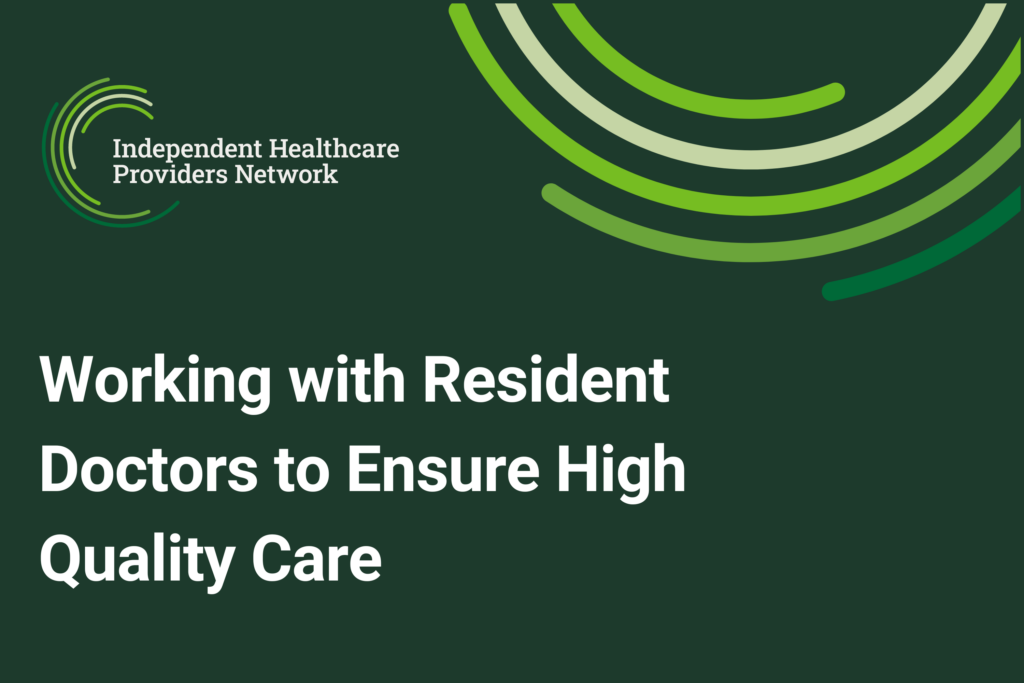
IHPN releases new report for assurance of Resident Doctors
17/01/2024
We’re releasing a new report called “Working with Resident Doctors to Ensure High Quality Care”, which lays out a set of four principles that have been developed to provide a focus for the assurance of Resident Doctors. In the development of the principles, we worked with a project reference group which included both IHPN members and external stakeholders such as GMC, Royal College of Surgeons, and others.
A Resident Doctor is an on-site doctor who ensures continual medical presence (where required) within independent healthcare facilities. They must be fully registered and licenced with the General Medical Council. When consultants are not on-site, Resident Doctors provide day and overnight cover as a key member of the team. Resident Doctors themselves are not a homogenous group. They have a wide range of skills and expertise and range from doctors in their first roles looking to gain experience before moving on to work in the NHS or undertake GP Training, through to career Resident Doctors and everything in between.
Models of Resident Doctor provision vary across the independent sector and continue to evolve. They often vary even within the same independent provider chain. Resident Doctors may be employed by independent providers, in some cases as clinical fellows or as doctors undertaking research or be employed by commercial organisations providing resident doctor services to the independent sector.
The principles were developed with the Medical Practitioners Assurance Framework (MPAF) as a starting point, and builds on it by providing more detail around the expectations that the independent sector has of itself (including commercial organisations supplying it with Resident Doctor services) in the governance of Resident Doctors working in their facilities. It aims to support the sector by providing principles for independent providers that will help Resident Doctors to provide safe and effective care in an environment that supports them and their wellbeing.
The four principles are:
- Creating an effective clinical governance structure
- Monitoring patient safety, clinical quality and encouraging continuous improvement
- Supporting Resident Doctors and whole practice appraisal
- Raising and responding to concerns
The report explains each principle in more detail, along with examples of practice, and an appendix describing how the principles were developed. You can read the report full here.
